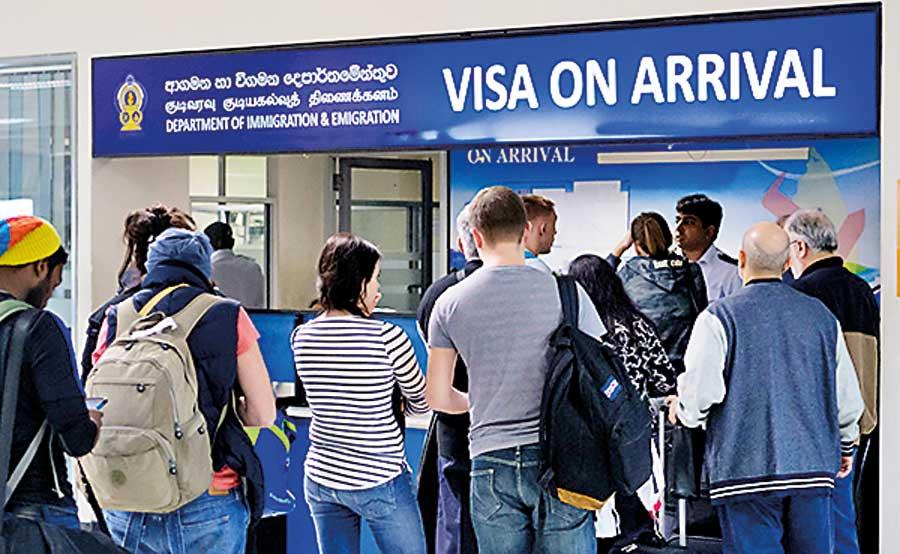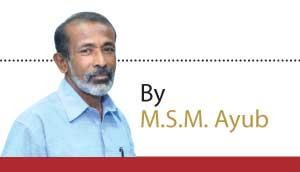Reply To:
Name - Reply Comment

- Concerns over transporting people to quarantine centres
- Appropriate for politicos to leave relevant officials to handle the situation
- Hizbullah threatens action against forcible acquisition of Batti Campus
Many countries have taken unprecedented measures to prevent the spread of COVID-19 ignoring the huge economic loss they would have to incur
Although the fatality rate of COVID-19 (initially coronavirus or 2019-nCoV) is far less than that of Ebola which spread in some African countries, the pace in which panic spread about the new disease is far ahead than the virus itself. This is because the pace in which COVID- 19 spread is drastically higher than that of Ebola.
Against this backdrop, the new disease has drawn the concerns of all countries affecting their economy and even socio-cultural activities. Italy has locked down the country while China’s decision to lockdown the Hubei Province still stands despite a drastic drop in COVID-19 cases in the country, particularly in Hubei, since mid-February. 
New cases have been reported from some 120 countries including Sri Lanka.
The first case here was reported on January27 when a 44-year-old Chinese female tourist tested positive for the virus. Later in March 3, the first Sri Lankan (46) infected by the virus was reported from Brescia in Italy. Two more Sri Lankans were among 15 new cases reported from the UAE on Wednesday.
On the same day, the Health Ministry announced the first Sri Lankan COVID-19 case within the country -- a tour guide (52) who had reportedly come in contact with a group of Italian tourists. On Thursday, another patient had been tested positive.
Many countries have taken unprecedented measures to prevent the spread of COVID-19 ignoring the huge economic loss they would have to incur. While the World Health Organisation (WHO declared the coronavirus outbreak a pandemic on Wednesday, the United States stopped all flights to and from Europe except Britain which recently exited from the EuropeanUnion under the much debated Brexit agreement. Saudi Arabia followed suit but including Britain. Saudi Arabia has also suspended visa for those visiting the country for Umrah (an off-season Islamic pilgrimage to Mecca).
"If air passengers were to be isolated for 14 days, how can they be allowed to mingle with the employees of hotels where they are taken for refreshments and to use facilities there?"
Sri Lankans and foreigners returning from abroad except South Korea, Italy and Iran have been asked to self-quarantine in their homes or other destinations in the country for 14 days in a bid to prevent the possible spread of the disease. However, the quarantine process in private houses is not clear as people who returned from overseas have to share the same sanitary facilities with others. Two special quarantine centres have been set up at the controversial Batticaloa Campus in Punani and Kandakadu Rehabilitation Centre in Polonnaruwa for these passengers.
Interestingly, China, where the largest number of cases were reported (some 80,000 cases and more than 3000 deaths) has not been included in this category.
In a televised interview, Minister Susil Premajayantha justified China’s exclusion claiming that since the Hubei Province (epicenter of COVID- 19) was locked down, there was no need for others from China to be quarantined in special centres on their arrival to the country. He is wrong! The situation in China is fast changing. Last week, there were days when some 100 new cases were reported from other provinces while none reported from Hubei.
Although acquiring the Batticaloa Campus for a quarantine centre is justifiable as it is vacant since construction, Muslim politicians view it as a politically and communally sadistic act by the government, like storing paddy at the Mattala Rajapaksa International Airport by the previous regime.
They base their arguments on communal, legal and political allegations levelled against the Batticaloa Campus which some people are fond of calling “Sharia University” after the terrorist attacks on last Easter Sunday. Former Eastern Province Governor M.L.A.M. Hizbullah who heads an organisation that constructed the campus alleged that the government forcibly acquired it by deploying the army and without informing him. He had said he would take legal action against the government over this as the premises was a private property.
"The situation in China is fast changing. Last week, there were days when some 100 new cases were reported from provinces other than Hubei"
The government had to call on the general public and those who are to be quarantined in special centres to cooperate in its efforts. This followed a series of protests by passengers who arrived from the aforementioned countries and those compelled to support the government’s move to quarantine them in special centres.
Meanwhile, army sources said they had to face many problems in finding buses to transport people to quarantine centres owing to the fear on the part of bus owners and the crew, and while on their way to these centres, hotels had hesitated to accommodate the passengers for refreshments. Besides, residents in Punani and Kandakadu had expressed their displeasure over the establishment of quarantine centres in the area, fearing an outbreak of the disease in the vicinity of those facilities.
A similar situation prevailed in Angoda and Gothatuwa when a Chinese woman tested positive for COVID-19 in January. People almost abandoned the Infectious Disease Hospital (IDH) she was warded. Later, while the woman was still in hospital, the situation returned to normalcy. However, there was a slump in the OPD when the tour guide who allegedly contracted the virus was taken to IDH on Wednesday, but the wards showed a different picture.
Although relevant authorities requested people to look at the problem as a humanitarian issue, they too have to understand some of the concerns of these protesters which are logical and as such should make alternative arrangements. For instance, if these air passengers were to be isolated for 14 days, how can they be allowed to mingle with the employees of hotels where they were taken for refreshments and to use facilities there? It is appropriate for the authorities to take refreshments with them in the same buses.
"In a televised interview, Minister Susil Premajayantha justified China’s exclusion claiming that since the Hubei Province (epicenter of COVID- 19) was locked down, there was no need for others from China to be quarantined in special centres on their arrival to the country. He is wrong!"
Another point some people have pointed out is that those taken to the quarantine centres are housed in common halls instead of separate rooms and this might lead to a virus spread. Although the authorities might be facing problems to accommodate people in separate rooms, one has to appreciate the argument.
Meanwhile, the Janatha Vimukthi Peramuna (JVP) questioned the validity of the statement made by Army Commander Lieutenant General Shavendra Silva calling for the support in preventing the spread of the disease as he was a military person. They seem to have overlooked the fact that it was the army that facilitated the establishment of quarantine centres and the transportation of air passengers.
While healthcare officials are addressing the general public over the issue, government leaders are making various statements to advise people. It is appropriate for politicians to leave relevant officials to handle the situation without attempts to win brownie points with the electorate since the issue might easily be politicised with the intensifying general election heat and it would be disastrous.